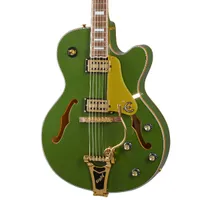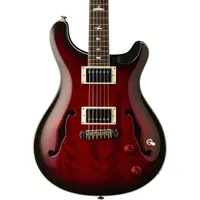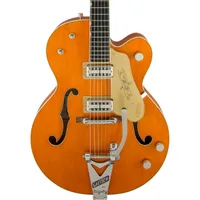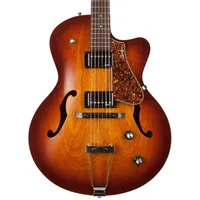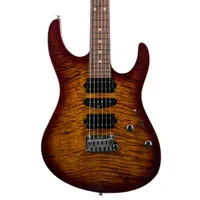Best jazz guitars: great jazz guitars for traditional and modern players
My pick of the best electric guitars for jazz from Ibanez, D'Angelico, Fender, Gibson, and more
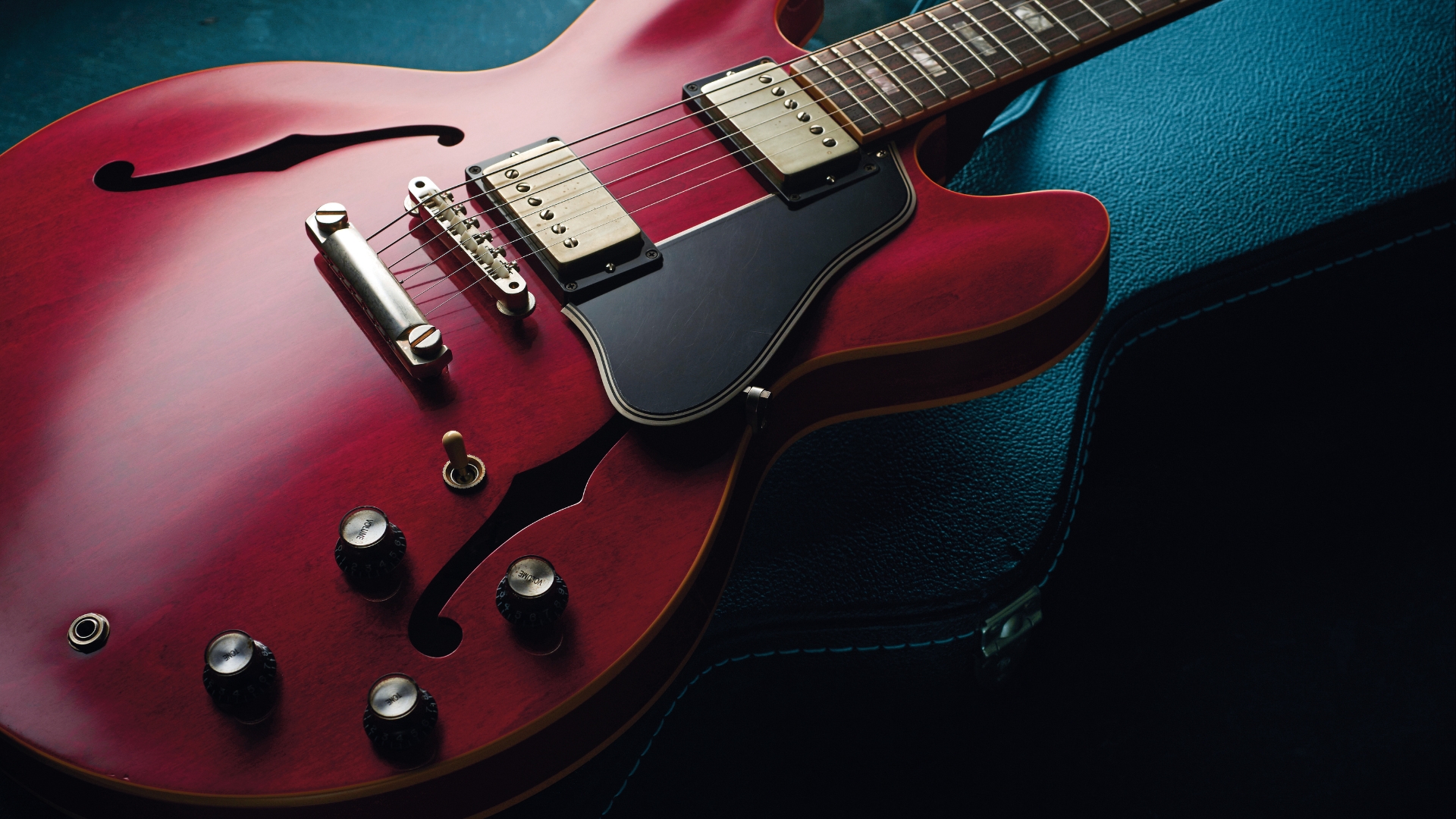
All the latest guitar news, interviews, lessons, reviews, deals and more, direct to your inbox!
You are now subscribed
Your newsletter sign-up was successful
Jazz is a style that demands a lot of nuanced technique, control of dynamics, and an expressivity you don’t often find in other styles. No two jazz guitarists are the same, and while there are plenty of different types of instruments you can use, the best jazz guitar will allow you to demonstrate your unique voice.
Because of each jazz player’s varying approach and individual style, we’ve provided an equally eclectic list of jazz guitars, catering for classic tones or more modern, progressive jazz. Every entry on our list can handle beautiful cleans and will even work with light overdrive – some even excel when it comes to gain. All have a forward-facing, responsive tone that works perfectly for jazz licks and complex chord voicings, so you can be confident they’ll be fit for your playing.
If you want the best jazz guitar money can buy, it doesn't come much more iconic than the Ibanez George Benson Signature GB10. It's a classic jazz guitar, delivering iconic jazz tones with superb playability. If you need something a little less costly, however, go have a look at the Ibanez AF55 Artcore, which has all the characteristics of a great jazz guitar without a huge price point.
If you’re new to jazz guitar, make sure to check out our FAQs section at the end of this article. For those who just want to get started, keep scrolling to see our top picks.
My top picks
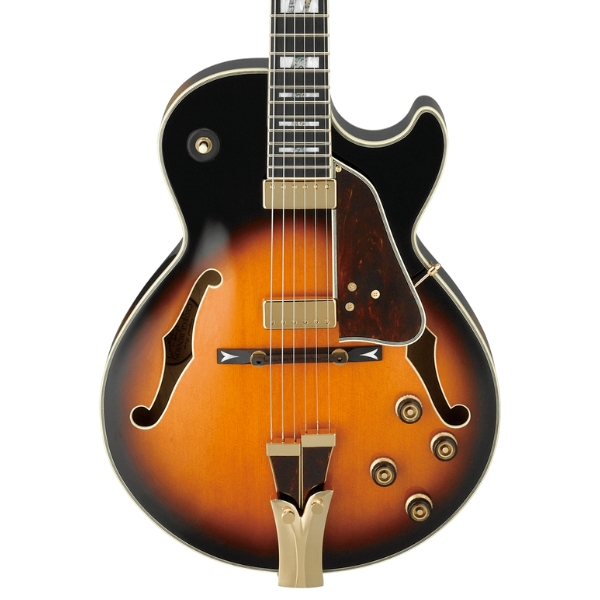
If you're looking for the best all-around jazz guitar, I'd go for the Ibanez George Benson Signature GB10. Built in collaboration with a master jazz guitarist, this is a premium instrument that can handle all styles of jazz.
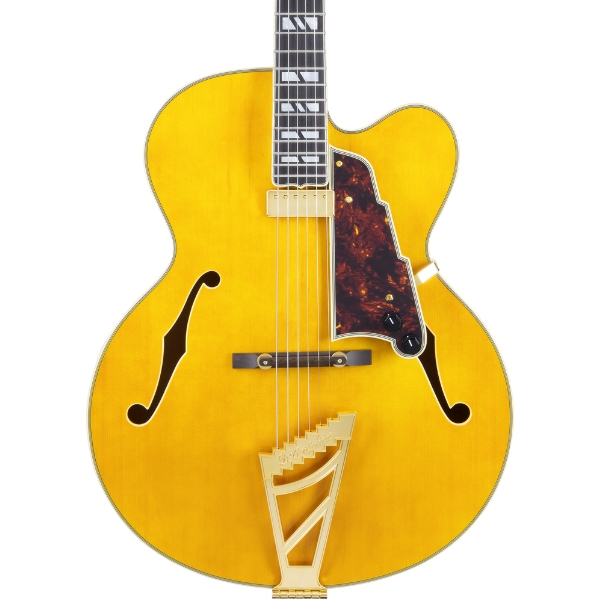
If you want to go down a more traditional route, then consider the D’Angelico Excel EXL-1. It's an old-school hollowbody archtop that dishes out some of the most faithful jazz tones you'll hear this side of the '50s.
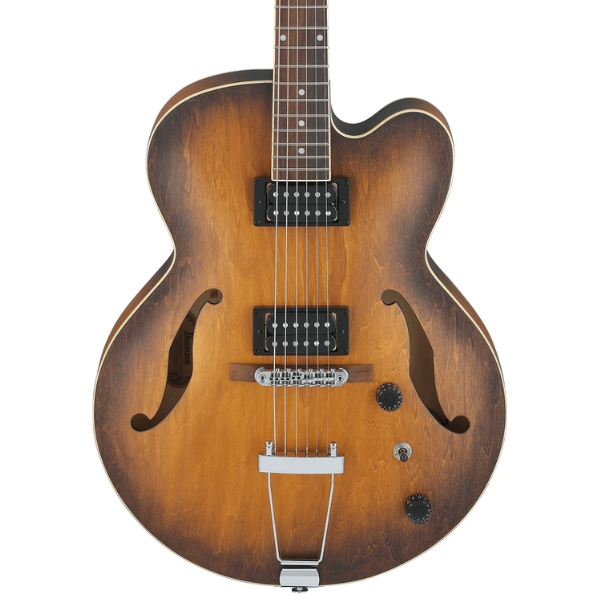
The Ibanez Artcore AF55 is the perfect gateway into hollowbody jazz guitars in my opinion. It's got the classic warmth of tone you need from a good jazz guitar, with the hollow body delivering the signature, mellow attack.
Best overall
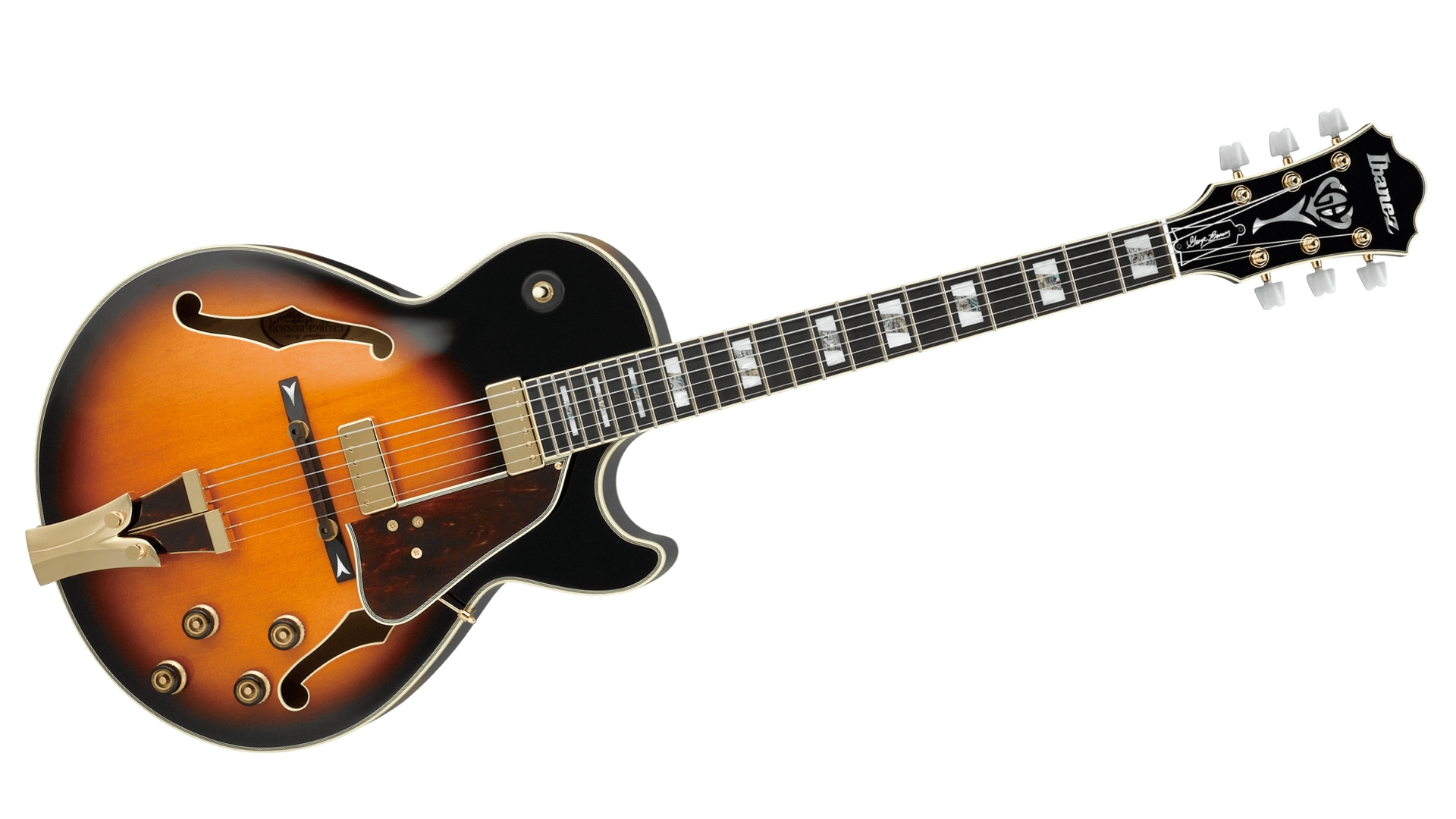
1. Ibanez George Benson Signature GB10
Our expert review:
Specifications
Reasons to buy
Reasons to avoid
The Ibanez George Benson GB10 isn’t just one of the best jazz guitars you can buy right now, it could stake a claim as one of the best jazz guitars ever made. First launched in 1977 and taking the crown as the longest running guitar in the entire Ibanez catalog, the GB10 was made in collaboration with jazz legend George Benson, to produce a guitar that would fit his high standards of smooth sound and unbeatable playability.
Beautiful tone woods have been used to create the GB10, with spruce sides and a maple top making up the body construction, and paired with a three-piece maple neck topped with bound ebony. This construction, along with the floating GB special humbucking pickups, helps contribute to the tight lows and mids while producing a swift attack in the high end and rich sustain, without being overly bright.
The attention to detail is immaculate throughout, as you can expect from any Ibanez instrument crafted in Japan. From construction, to tone, to looks, this is the pinnacle when it comes to jazz guitars, and it comes with a price tag to match.
Best traditional
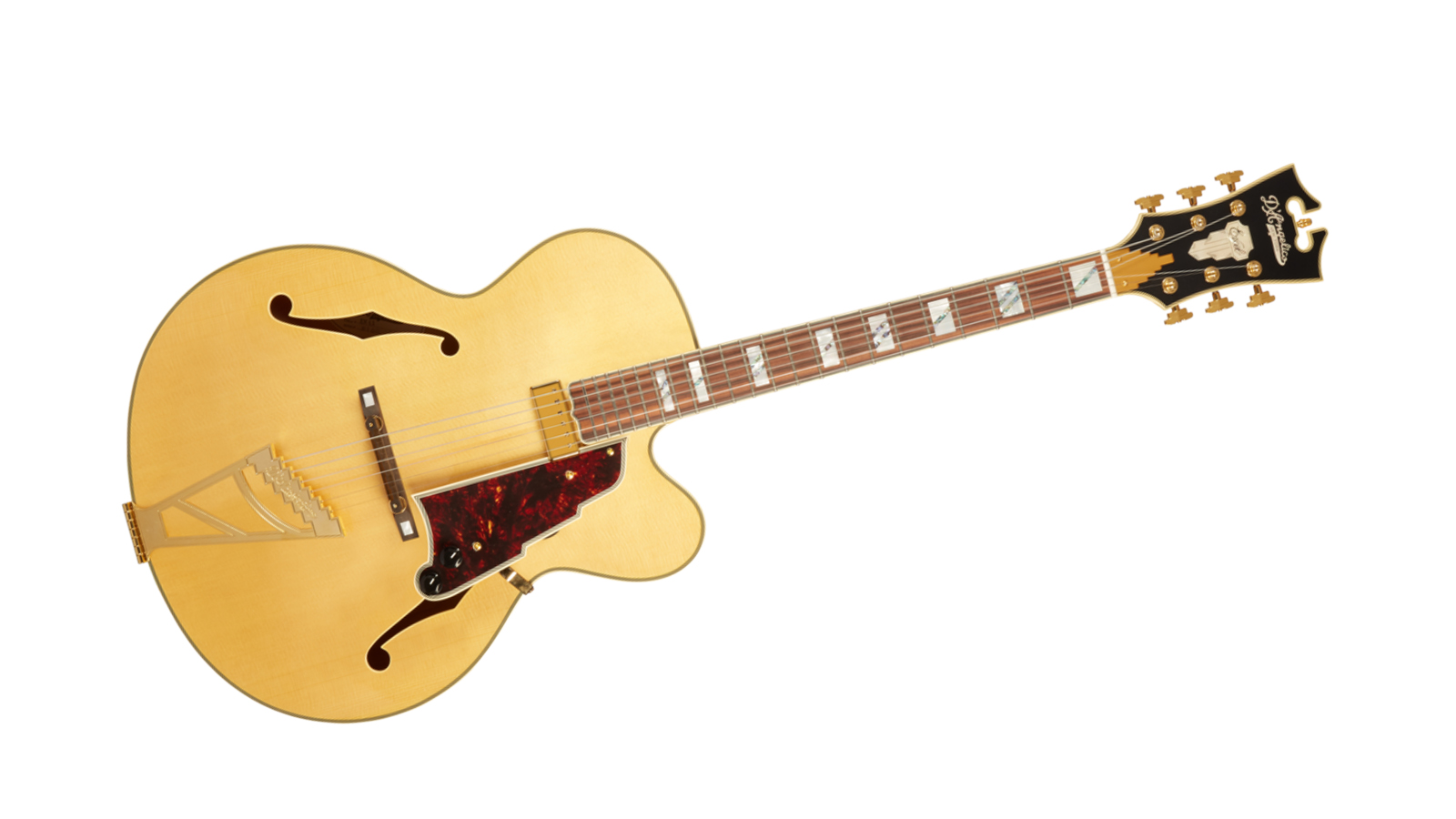
2. D’Angelico Excel EXL-1
Our expert review:
Specifications
Reasons to buy
Reasons to avoid
This is based on John D’Angelico’s original design and perfectly captures the essence of old-school New York jazz. It’s fitted with a single pickup - a Seymour Duncan Johnny Smith Floating Mini Humbucker, which helps distribute the full-bodied warmth thrown out by the 17” wide and 3” deep fully hollow body.
Whilst it’s not the most versatile electric guitar in the list, the D’Angelico Excel EXL-1 is perfect for jazz. The pickup is clear, defined, and balanced across the frequency spectrum. The neck profile is nice and slim, making wide stretches a speedy licks comfortable to play.
The Excel EXL-1 sits at the top of D’Angelico’s arch top range and as such is beautifully crafted. The art deco touches like the scratch plate and tailpiece add to the classy, timeless look of the guitar.
Best budget
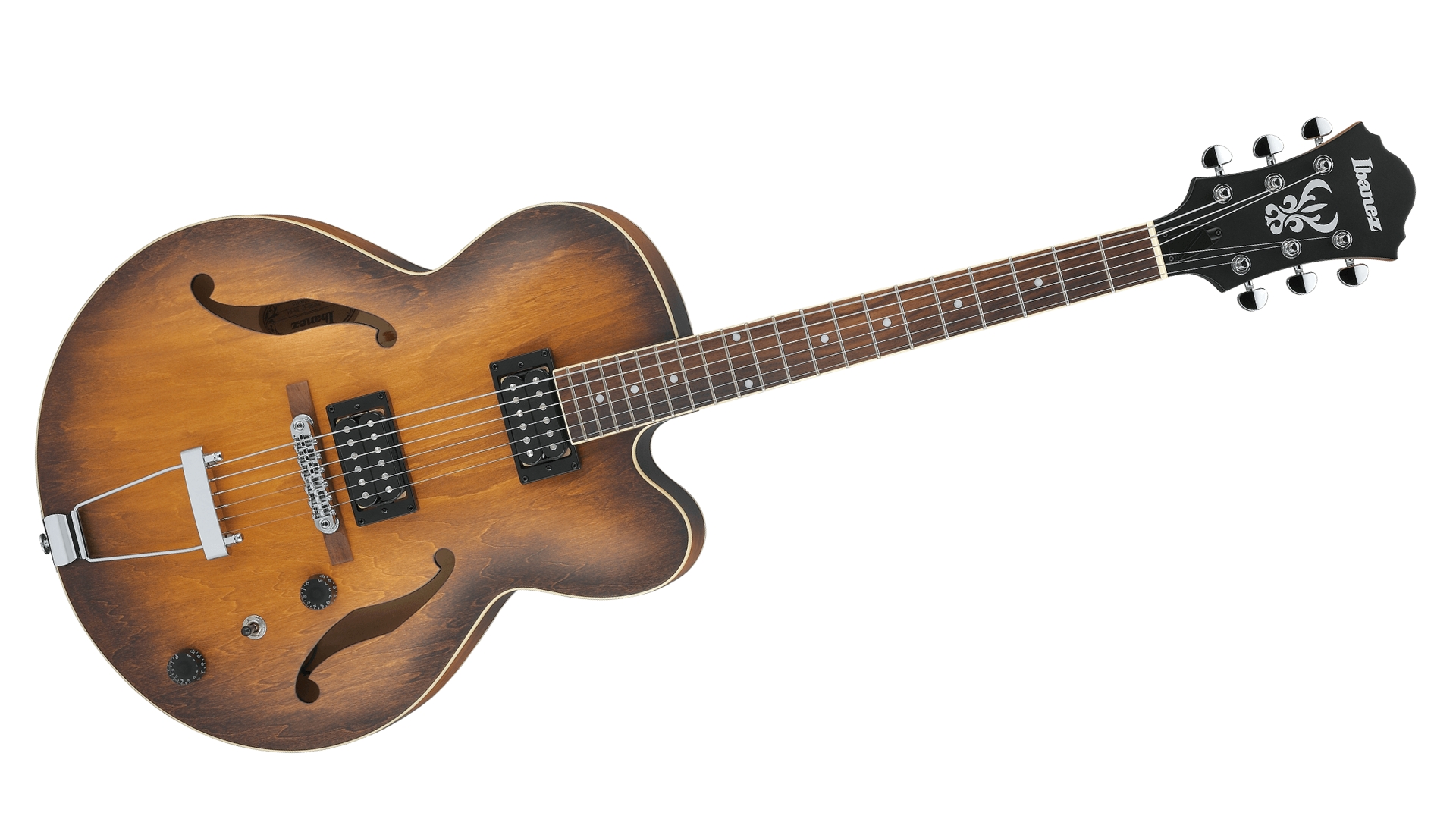
3. Ibanez Artcore AF55
Our expert review:
Specifications
Reasons to buy
Reasons to avoid
The Ibanez Artcore range is a fantastic point to jump into hollowbody guitars and the AF55 is ideal for anybody looking for a cost-effective, larger-body jazz guitar. It delivers the trademark warm, woody tone and mellow attack that characterizes a hollowbody and makes them ideal for jazz playing.
Its Tobacco Flat finish is pretty classy for a guitar of this price point and looks better than you might expect, but equally you won’t be too worried about taking it out on the road and it could be perfect as a gigging workhorse. It’s a shame it is slightly let down by the plastic, exposed humbuckers, but that sort of thing is to be expected from any budget guitar.
The Artcore AF55 is perfect for those who want to try out jazz guitar, without committing too heavily to a premium model and is a great way to get used to the tones and quirks (i.e. feedback) of hollowbody guitars.
Best solid body
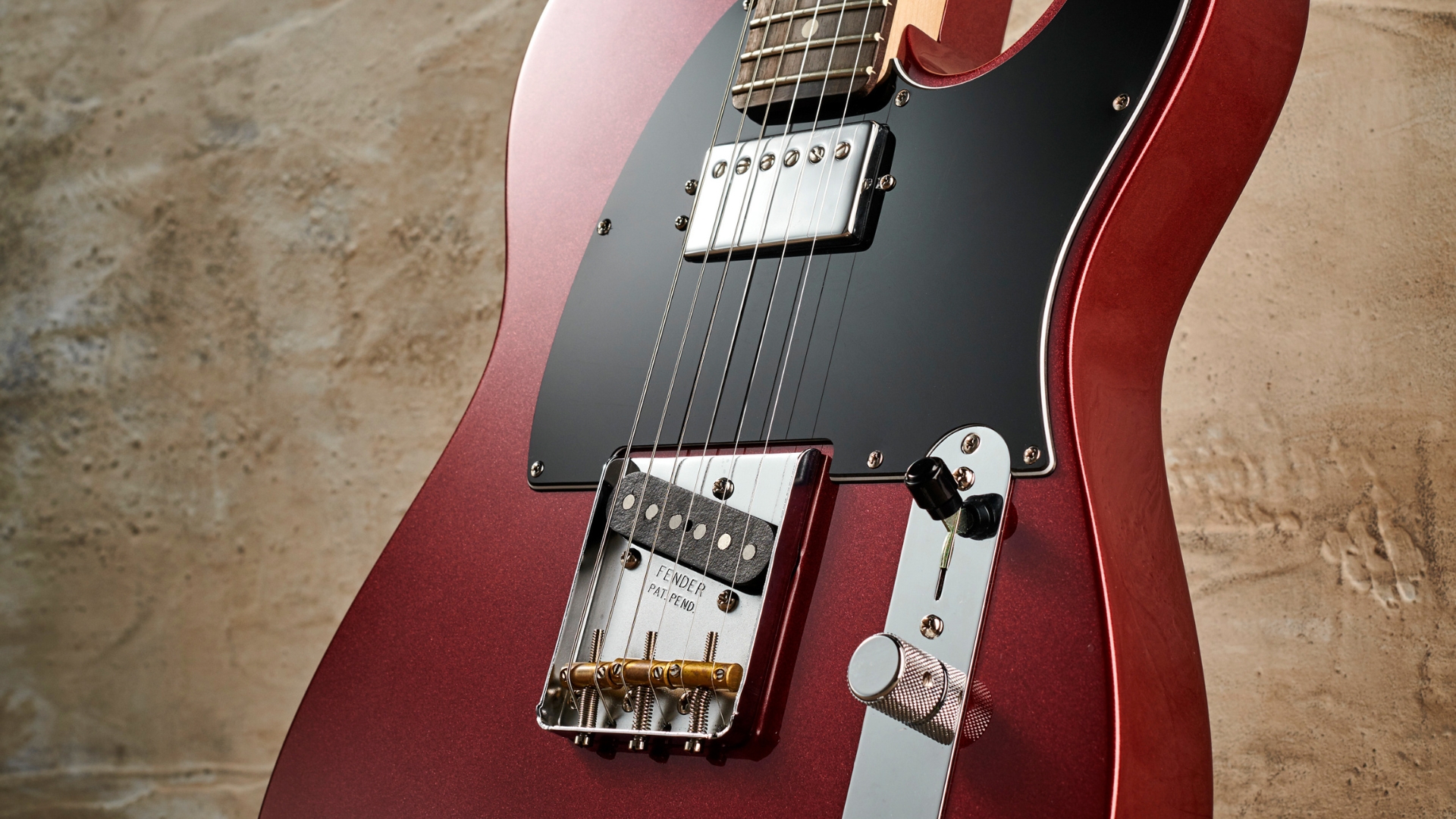
4. Fender American Performer Telecaster
Our expert review:
Specifications
Reasons to buy
Reasons to avoid
A Tele might not seem an obvious choice for jazz - the legendary solidbody as about far away from a hollowbody as you can get. That said, a good Tele is very capable of producing some incredible jazz tones, as proven by the likes of Ed Bickert and Mike Stern. A Tele also means you can turn it up, and add some gain to your tone without having to worry about the guitar feeding back.
The Fender American Performer Telecaster Hum is a superb choice if you’re looking for a versatile jazz guitar. The humbucker in the neck position gives you lots of warmth and depth, however, it’s armed with a push-pull tone pot that essentially turns it into a single coil, without a drop in volume. The bridge pickup gives you some classic Tele tang which can be nice for lead work, and the two pickups combined gives a beautiful, smooth tone.
The Greasebucket tone circuit also allows you to take out some of the high frequencies that you might not want, without muddying your existing tone, or adding more bass frequencies.
Best semi-hollow

5. Gibson ES-335
Our expert review:
Specifications
Reasons to buy
Reasons to avoid
One of the most ubiquitous guitars in blues and rock is also one of the best guitars for jazz. The semi-hollow body gives it a great resonance, but you won’t be quite as prone to feedback if you’re playing really loud or with gain. There’s a really nice bite to the bridge pickup that’s handy for cutting through a mix when playing solos - roll off a little on the tone knob and you can tame it instantly.
Gibson really are making some of the best guitars that they have ever built. There’s no doubt that you’re playing a premium instrument, with superb playability and clarity all over the neck. The medium C isn’t a slim profile, but it’s not quite as thick as some of Gibson’s late 50s-style profiles.
Gibson’s ES-335 body shape is one of the all-time classic guitar shapes. It’s big enough to resonate really well, but it’s still comfortable to play for most players out there; still one of the best jazz guitars today.
Best for gigging
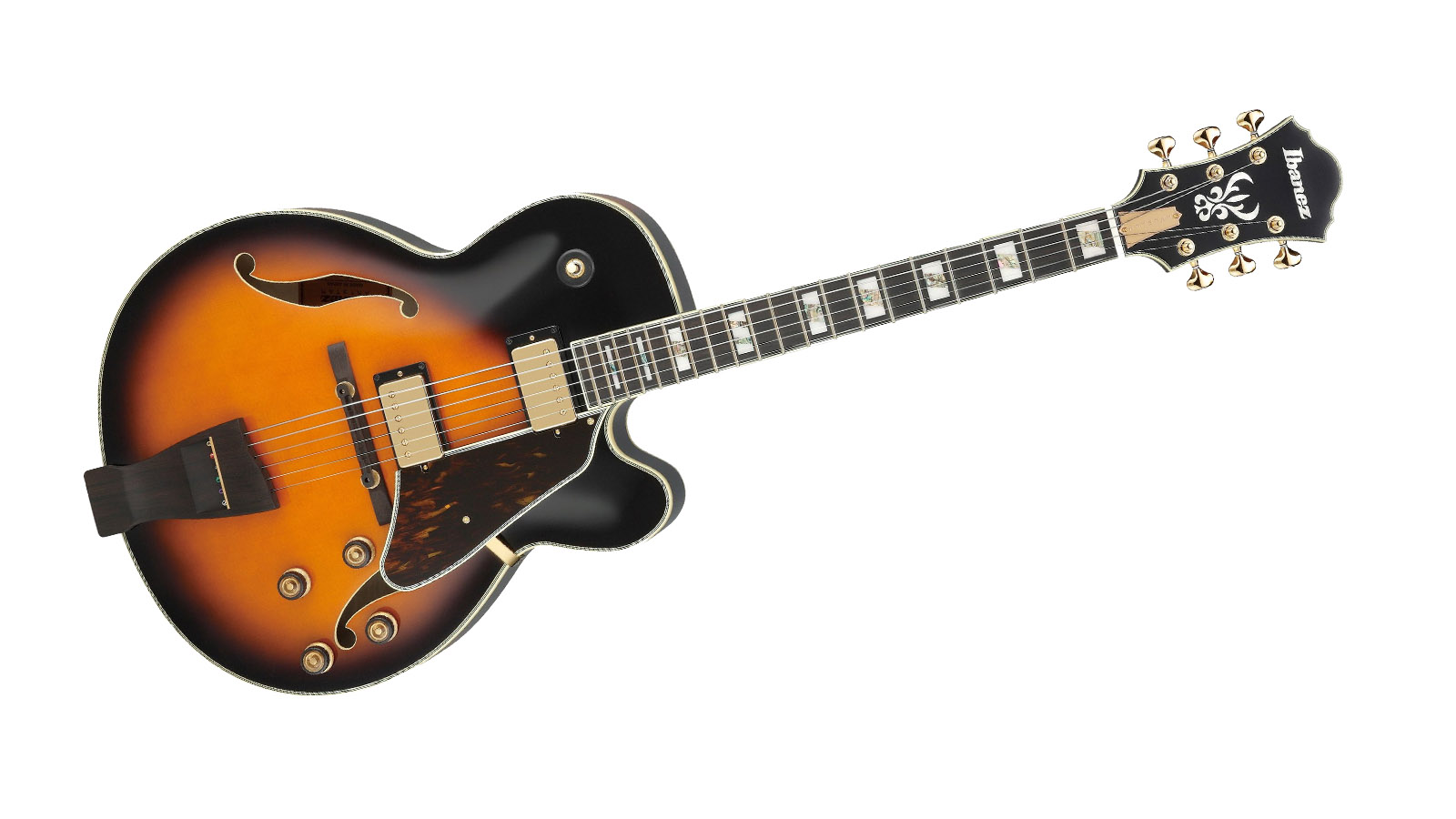
6. Ibanez AF2000
Our expert review:
Specifications
Reasons to buy
Reasons to avoid
Absolutely one of the best guitars for jazz out there right now. Fitted with a pair of vintage voiced Super 58 humbuckers, the Ibanez AF2000 dishes out mellow, smooth and balanced tones that are perfectly suited to jazz. Playing extended chords, you can hear each note ring out nicely, allowing you to perform with utmost expression. A volume and tone knob for each pickup allows you to craft your tone perfectly to suit the sound you need at any given time.
The build quality is superb, and you can see the attention to detail that’s gone into it, especially with the tailpiece, headstock inlays and Gotoh 510 tuning pegs. The neck profile feels great in the hand and it plays like dream all over the neck. Whilst the Ibanez AF2000 boasts a fairly traditional design, it benefits from modern playability and reliability.
This is a pro-level instrument, and though it’s not cheap, you’re getting a whole lot of guitar for the money.
Also consider
For me, the above guitars should do the business if you want a great jazz guitar. That said, I appreciate they might not account for all tastes, so here are some more jazz guitars for your consideration.
Epiphone Emperor Swingster
Hollowbody, maple | Mahogany neck | Epiphone SwingBuckers | 20-frets
It’s got the classic hollowbody sound; it’s warm, rounded and rich, with plenty of bite available in the bridge pickup should you need it. Through a clean guitar amp, the neck pickup delivers a beautiful, mellow jazz tone, and in the middle position, you can get a great, slightly percussive, slightly quacky tone that’s great for lead playing. Each pickup has an individual volume and tone knob too so you can really shape your sound.
★★★★½
PRS SE Hollowbody Standard
Hollowbody, mahogany | Mahogany neck | 58/15 ’S' humbuckers | 22-frets
This could be one of the best guitars for experienced players migrating to the world of jazz. The PRS body shape will be familiar to many already (though technically, this model is very slightly bigger than a regular PRS), and the Wide Fat neck profile provides a nice late-50s Gibson-esque feel for the fretting hand.
★★★★½
Gretsch G6120T-59 Vintage Select ’59 Chet Atkins
Hollowbody, maple | Maple neck | TV Jones Classic pickups | 22-frets
The hollow body provides great resonance as well as warmth and richness. The TV Jones Classics are incredibly clear and articulate, and they’ve got a character to them that you don’t hear in other pickups. If you want a strong picking attack for single note leads, that’s no problem on the bridge pickup, but, should you want to mellow it out, the neck pickup can do so perfectly. Whilst you don’t have a tone knob, you do get a three-way tone switch which can help you shape your sound how you want.
★★★★½
Godin 5th Avenue CW Kingpin II
Hollowbody, Canadian wild cherry | Silver leaf maple neck | P90 Single Coils | 21-frets
This Godin archtop hollow body provides a nice alternative to humbucking pickups in the form of two P90 single coils. These are great if you’re playing gyspy jazz, though they’re punchy enough in the low mids for more traditional jazz too. The sound will be a little thinner than with humbuckers, but that can really work sometimes.
★★★★½
Suhr Modern Plus
Solidbody, basswood | Roasted maple neck | SSH+, V60LP, SSV (HSH) pickups | 24-frets
It’s got a trio of pickups - a high-output humbucker in the bridge, a '60s-inspired Strat-style single coil in the middle, and a vintage voiced humbucker with extra clarity in the neck position. Chord inversions and lead lines ring through incredibly clear in all positions, but the neck pickup on its own does have a beautiful vintage character to it, and the bridge is perfect for cutting through a mix.
★★★★½
FAQs
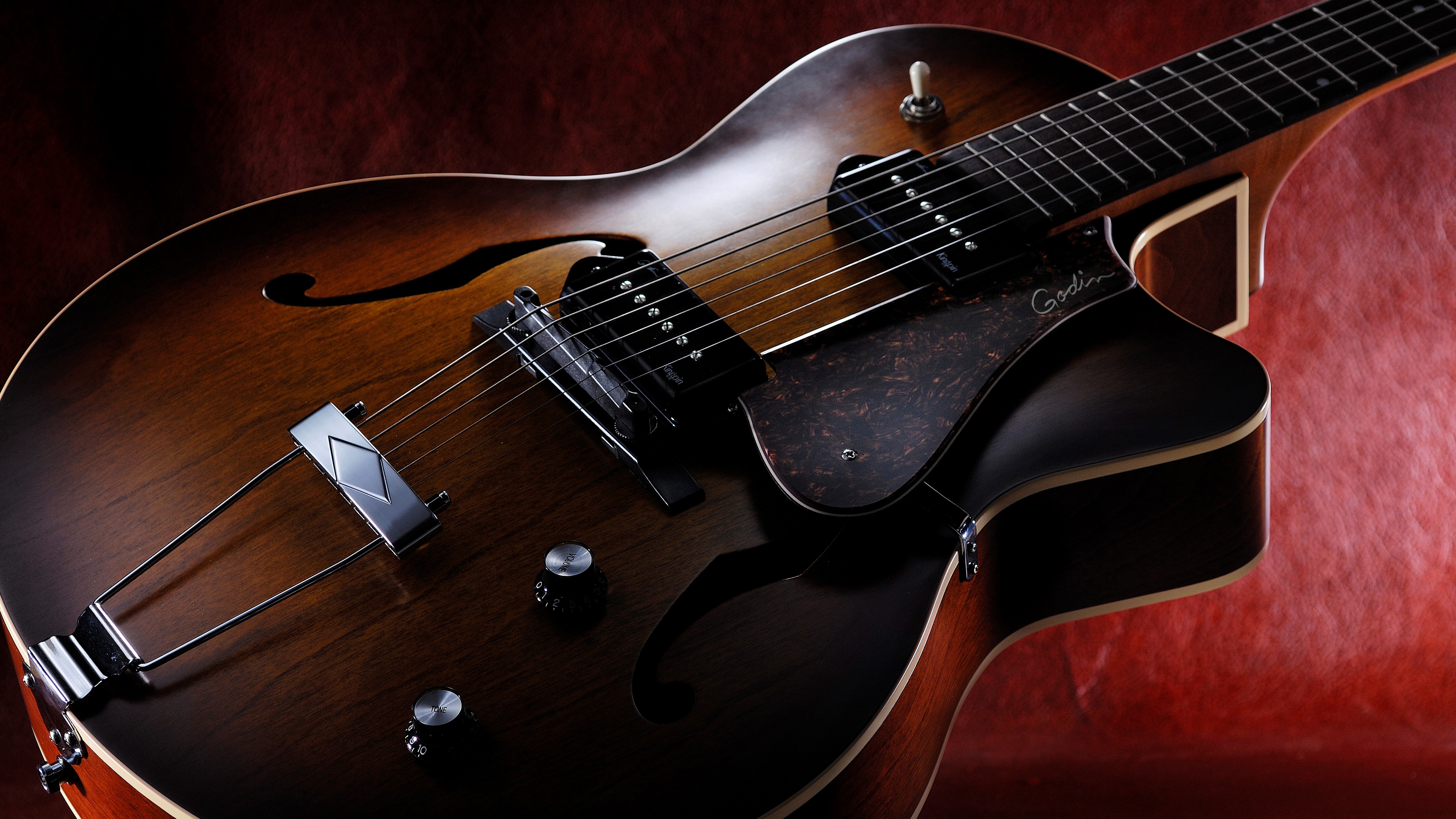
Are hollowbody guitars best for jazz?
Traditionalists would argue that hollowbody is the way to go when it comes to jazz guitars, they’re the classic choice, and for good reason. Due to their construction, hollowbody guitars have a huge amount of warmth and a beautiful low-end response, though this comes at a cost of some sustain.
Hollowbody guitars have one big drawback, in their propensity to feedback when positioned closely to a particularly loud amplifier or when using a lot of gain – generally, this isn’t an issue for most jazz players. If you are likely to play a more modern style of jazz, or fusion, where gain may be introduced into the mix, a good compromise may be a semi-hollow guitar, which shares similar looks, but helps to nullify many of the feedback issues, plus you’ll have a guitar with greater sustain too.
Is one pickup enough for a jazz guitar?
If you’re strictly playing cool rhythm on your jazz guitar, one pickup may be sufficient – and a nice rounded neck pickup would fit the bill – however, we would recommend investing in a dual-pickup guitar (or more) that allows you to switch between different tones with ease.
Consider a guitar that also has independent volume and tone controls for each pickup, so you can reign in a bitey bridge pickup if necessary, or turn it up to ten and have a ready-made ‘two-channel’ set up – rolled back neck for rhythm, fired up bridge for lead. This is ideal for players who don’t want to rely on pedals with all your tones being produced by a versatile guitar and a dynamic amplifier.
What neck profile is best for Jazz?
Our selection of the best jazz guitars features multiple different neck profiles, and what works best for you will be different to somebody else, particular when considering the specific subgenre of jazz you’ll be playing. It all comes down to what you find most comfortable, particularly when considering that some of those jazzy chord inversions require some pretty vigorous finger stretching, so make sure any neck is particularly agreeable for your fretting hand.
How much should I pay for a jazz guitar?
The amount you spend on a jazz guitar will be down to your budget, but also if you’re a professional or a hobbyist/enthusiast. If you can stretch to the $1,500 mark, you’ll find superb options that should last many years whether you’re playing at home or on the road. You can, of course, spend comfortably more than that on some very special instruments, which may be more suited to pros for whom jazz is their livelihood, for example the Suhr Modern Plus.
The lower in budget you go, your options may become slimmer if looking for something tailored specifically to jazz – there are significantly more budget-friendly guitars that are jack-of-all-trades or lean more towards rock – however that doesn’t mean there aren’t some fabulous choices, such as the Epiphone Swingster or Ibanez Artcore series.
If you are forking out for a jazz guitar, budget or expensive, and particularly if you’ve opted for a delicate hollowbody, it is also worth factoring in the cost of one of the best guitar cases too to offer suitable levels of protection.
How we test
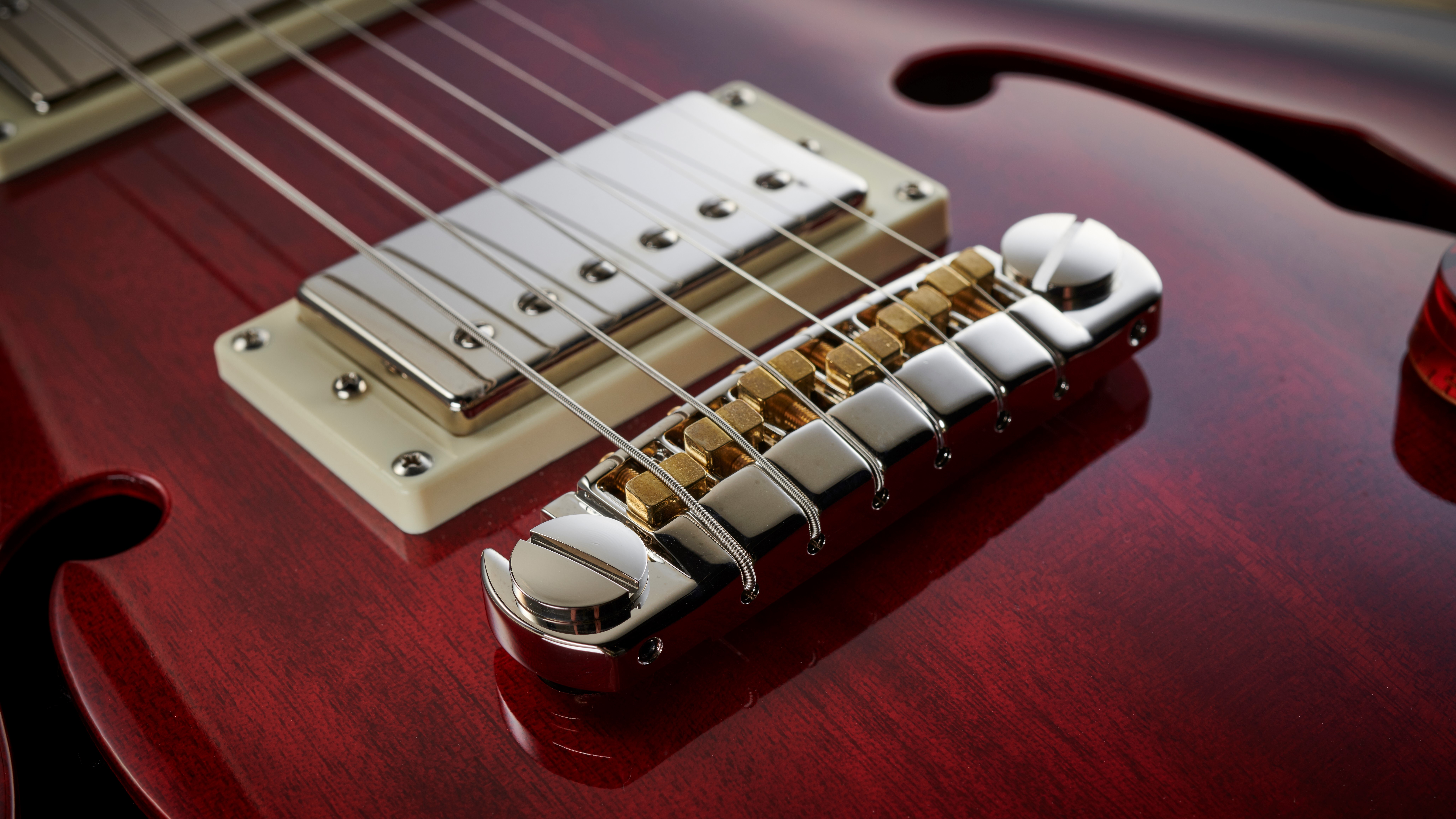
At Guitar Player, we understand the discerning taste and sophisticated requirements of jazz guitarists. With our dedication to providing insightful information for seasoned musicians, we have meticulously researched and tested a wide range of guitars to identify the best options available for jazz players.
To compile our list of top jazz guitars, we combine our expertise, meticulous research, and insightful discussions with our editorial team. We consider factors such as tonal characteristics, playability, craftsmanship, resonance, and versatility, ensuring that we showcase the finest guitars that meet the exacting standards of jazz enthusiasts.
As mature musicians ourselves, we recognize the importance of finding a guitar that captures the essence of the jazz tradition and delivers the rich, warm tones that define the genre. Whether you're a seasoned jazz artist, an experienced player exploring the realm of jazz, or a lifelong enthusiast seeking the perfect instrument, our goal is to provide reliable and informed recommendations that help you find the best jazz guitar that resonates with your unique musical voice.
Read more on how we test gear and service at Guitar Player.
Related buyer's guides
You can trust Guitar Player.
- The best tube amps from Fender, Marshall, MESA/Boogie and more
- The best blues guitars from Gibson, Fender, Duesenberg, PRS and more
- Take a look at the best acoustic guitar strings
- Plug in with one of the best guitar cables
- Unplug with our pick of the best acoustic guitars
- Check out the best Martin guitars
All the latest guitar news, interviews, lessons, reviews, deals and more, direct to your inbox!
After spending a decade in music retail, I’m now a freelance writer for Guitar Player, Guitar World, MusicRadar and Reverb, specializing in electric and acoustic guitars bass, and almost anything else you can make a tune with. When my head’s not buried in the best of modern and vintage gear, I run a small company helping musicians with songwriting, production and performance, and I play bass in an alt-rock band.
- Connor Godfrey
- Matt McCrackenJunior Deals Writer
